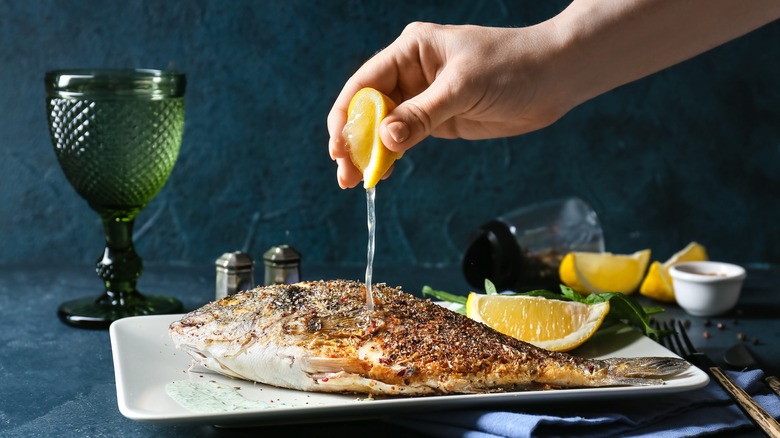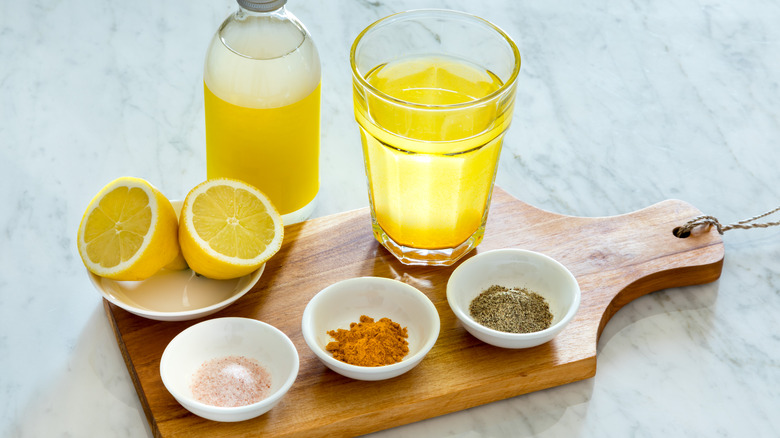A Touch Of Lemon Is All You Need To Fix Overly Salty Food
You're not alone in occasionally using more salt than you'd intended; even chefs aren't immune from making that mistake. In this situation, conventional wisdom may have you reaching for sugar or chopping up potatoes to balance the excess salt. However, these fixes don't work on every dish. You must use the right amount of sugar, otherwise the dish could end up sweeter than what you wanted. As for potatoes, they're more effective with soups and stews where there's excess salty liquid to be absorbed. That's why we recommend using lemon juice rather than salt to flavor your food before serving.
A satisfying dish should present a balanced layering of different flavors, and adding acidity to it wakes up the taste buds so they can savor each taste. Lemon also works to counter too much salt since the acid enhances our perception of the other flavoring agents instead of just tasting the saltiness. A splash of lemon juice won't bring down the sodium level, but it will mitigate its effect. It also does the same in instances where a dish turns out too sweet or too fatty to your liking.
However, as we've advised before, when using lemon as a flavoring fix and not as a main ingredient in your recipe, it's best added in once the food is off the stove to keep the heat from turning it acrid. Start off with just a splash as well since adding too much can curdle any dairy you used in the dish.
Balance your dish's flavors with some acidity
If a recipe comes out too salty for your taste, modify it by incorporating acidic ingredients during the prep and cooking process. Lemon juice works as a marinade and meat tenderizer and there are also other souring agents that can bring out the flavor nuances in a dish.
Vinegar, of course, is a classic cooking acid. With many types of it available, start with rice vinegar, which is a staple in Asian cooking. Its delicate taste won't overwhelm the other ingredients so it works well with any dish, from stir-fry to stews. Later on, discover what richer variants like the underrated sherry vinegar can do to recipes with its lightly sweet and nutty acidity. Creme fraiche is also a great choice; its creamy, nutty tanginess can thicken hot soups and sauces while also balancing the saltiness. For deep-fried dishes, a side of fermented vegetables (like kimchi) can cut through not just the sodium but also the fat with the zing it imparts to every bite. You won't go wrong, either, with pickling cabbage, cucumbers, carrots, and onions, but pickled fruits like green papayas and mangoes can add a tropical brightness to food.
To avoid over-salting, taste your food as you cook. That way, you season the dish in layers and you get the chance to balance the flavors before one outweighs the others. Check the sodium content of your ingredients, too, so you have a better gauge of the overall salt level.

